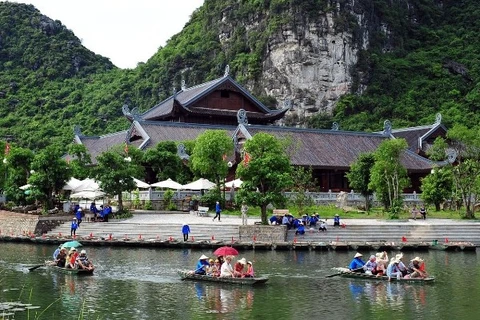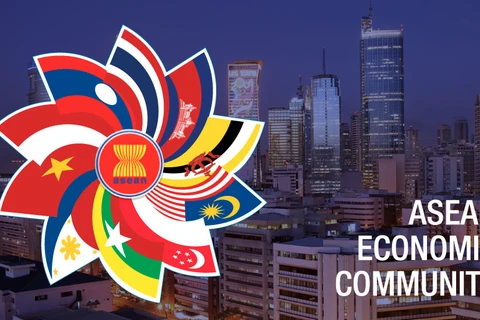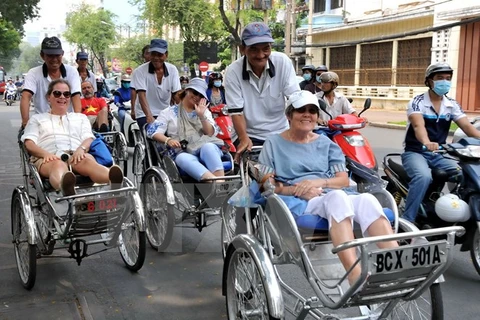Hanoi (VNA) – Outcomes of occupational skill evaluation programmes under the 2013 Vietnam Tourism Occupational Standards (VTOS 2013) were reported at a workshop held by the Vietnam National Administration of Tour
As part of the EU-funded development programme for environmentally and socially responsible tourism in Vietnam (EU-ESRT), the evaluation targeted the occupations of front office operations and housekeeping operations, in Hanoi, the Mekong Delta province of Kien Giang and the central city of Hue over the last three months.
The event offered a chance to have an overview of technical assistance of the EU-ESRT programme on education and vocational training, with a focus on building and applying VTOS 2013 in tourism vocational training.
Representatives spoke highly of the implementation of the EU-ESRT programme on education and tourism occupational training over the last three years, especially in building and adjusting technical documents to apply to Vietnam’s tourism training establishments, in accordance with the ASEAN Mutual Recognition Arrangement on Tourism Professionals .
Participants appreciated the evaluation model, suggesting further developing this in the future.
EU-ESRT experts proposed to list six major occupations, approved by relevant authorities, into the national standards.
VNAT Deputy Head Ha Van Sieu underlined the crucial role played by education and occupational training in Vietnam’s regional and global integration process, saying that skills training is directly connected to service quality – the main factor contributing to increasing competitiveness of the country’s tourism sector.
The VTOS - 2013 version covers six major occupations: front office operation, housekeeping operations, food and beverage service, food preparation, travel and tour operations and tour guiding.
In 2015, Vietnam served 64.9 million tourists, including 7.9 million foreigners, earning 338 trillion VND (15.21 billion USD).
The industry helps remarkably promote the country’s socio-economic development, contributing to poverty reduction, ensuring social welfare, preserving and upholding cultural values.-VNA























